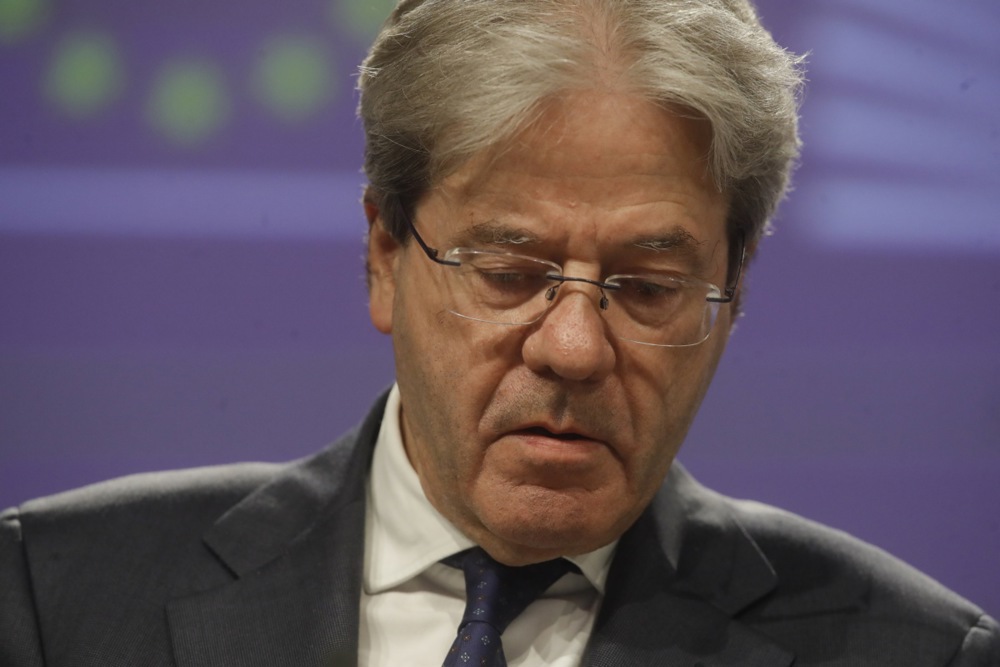Bulgaria, Czechia, Hungary, Poland, Romania and Sweden are not ready to join the euro currency, despite legal commitments to do so, according to the European Commission’s latest Convergence Report.
Bulgaria is currently the only country that fulfils all but one criterion and where national legislation can be considered to be compatible with the rules of the Economic and Monetary Union, the EC said in the report published on June 26.
Overall, it referred to “mixed results” in terms of nominal euro convergence.
Sofia is aiming to sign up in 2026, becoming the 21st member of the currency group.
The EC’s assessment is based on particular criteria such as price stability, strong public finances, exchange-rate stability and long-term interest rate convergence. It said while there had been positive development in all six countries, none of them yet met all the requirements for joining the euro.
Only legislation in Bulgaria can be considered compatible with EU law subject to the conditions and interpretations set out in the Convergence Report, the EC said. With the five other countries, this was not the case.
The body did add that they were all generally well-integrated economically and financially in the European Union, despite some of them showing some macroeconomic vulnerabilities and facing challenges with their business environments and institutional frameworks.
“This may pose risks to the sustainability of the convergence process,” the report stated.
The European Central Bank (ECB) has also published its own convergence document.
In that, the bank spoke of “limited progress by non-euro area Member States”.
All EU countries, except Denmark, have formally committed to joining the eurozone. The six countries listed above are currently striving towards that aim.
According to the ECB, inflation “above reference value” is seen as a key economic obstacle in central and Eastern European countries under review.
It also pointed to the fallout from Russia’s invasion of Ukraine, especially for countries with a higher energy dependence on and stronger trade links with Russia.
Euronews reported on June 26 that Bulgarian Prime Minister Dimitar Glavchev had noted the findings and said he would request a further assessment from EU authorities once the country met all euro criteria.
Recent polls indicated that only a minority in Bulgaria wants to join the euro. Most people believe joining will cause domestic prices to rise.
According to the latest Eurobarometer survey on the six countries, 49 per cent of Bulgarians, 49 per cent of Czechs and 47 per cent of Poles want to see the currency introduced in their country.
Only in Romania (77 per cent), Hungary (76 per cent) and Sweden (55 per cent), do the majority want to do so.
To make matters worse, from Brussels’ perspective, the European Parliament elections on June 6-9, saw the anti-West Bulgarian Revival party make gains.
In April 2023, it launched a petition to postpone the implementation of the euro until further notice. It received more than 604,000 signatures, well beyond the 200,000 required to trigger a vote.
Revival made headlines in May 2023 when its sympathisers stormed EU offices in Sofia, throwing red paint and waving the Russian flag.
The EC has remained positive, highlighting that when all numbers from the latest Eurobarometer survey were considered, 58 per cent of respondents were in favour of the country introducing the euro. Some 71 per cent of Bulgarians also believed the currency would be introduced within five years.
Paolo Gentiloni, Commissioner for Economy, stated: “The good news is that support for the euro is growing.
“An overall majority of citizens in these Member States are now in favour of their country joining the single currency: proof that in these uncertain times, the euro remains an anchor of stability.”





